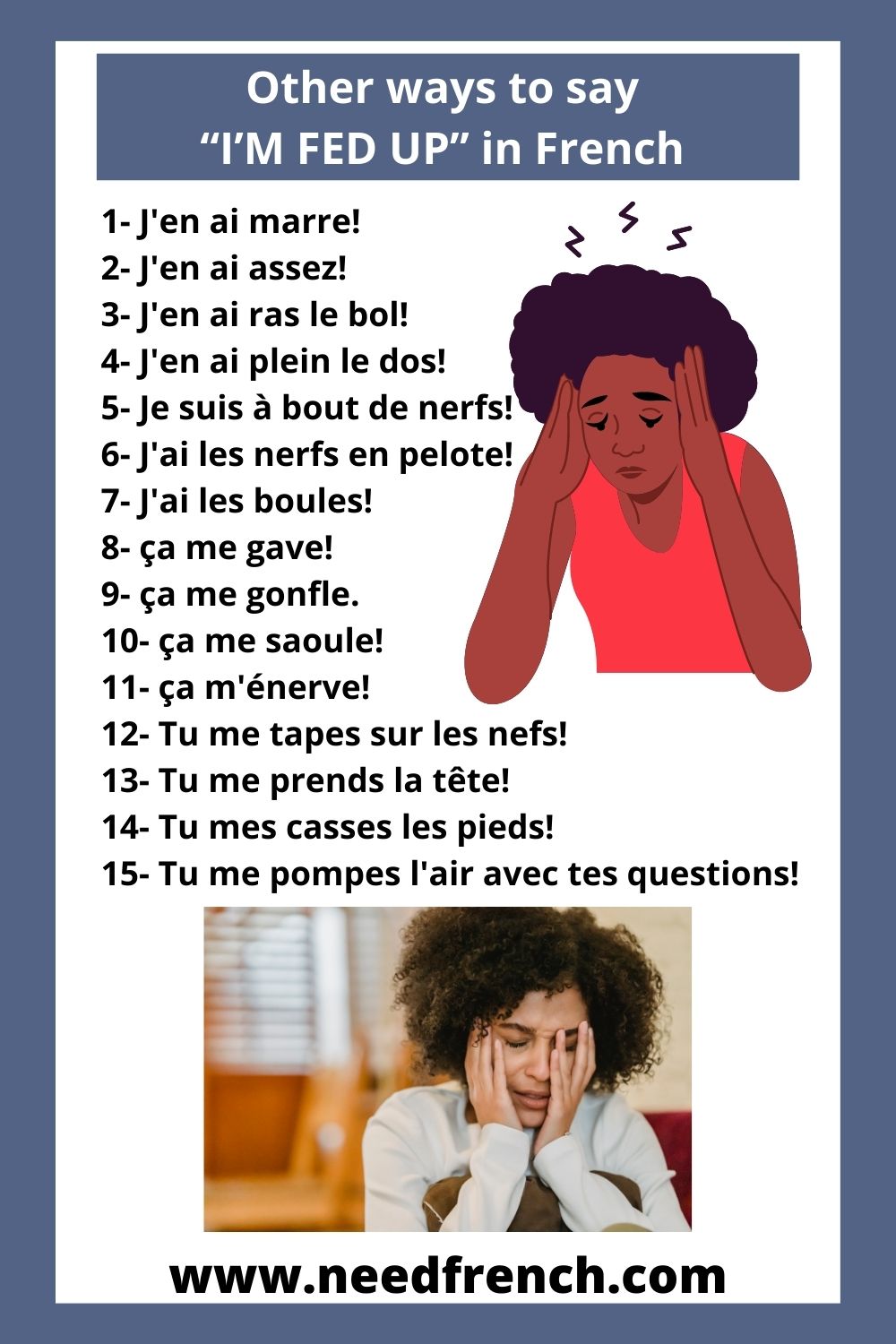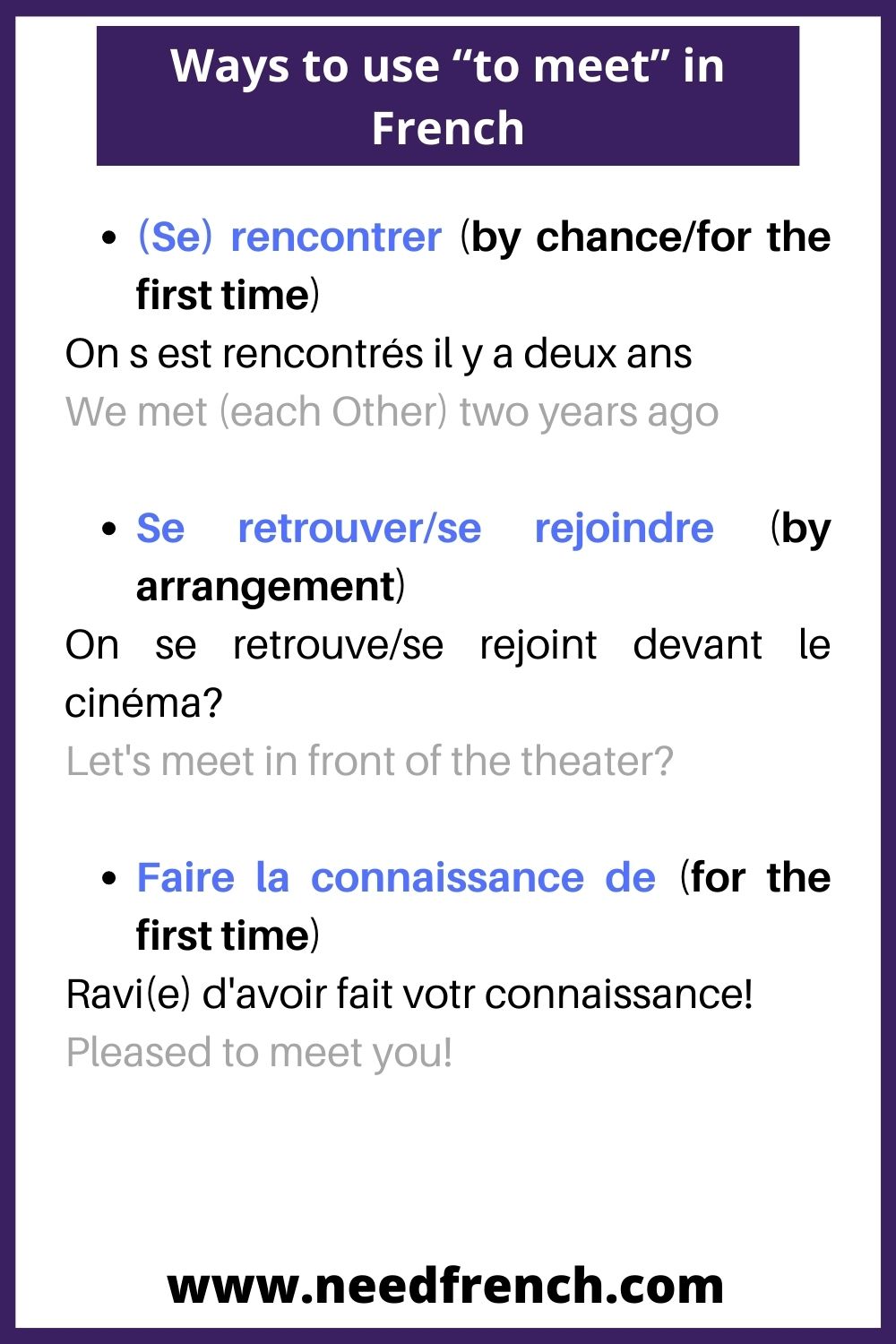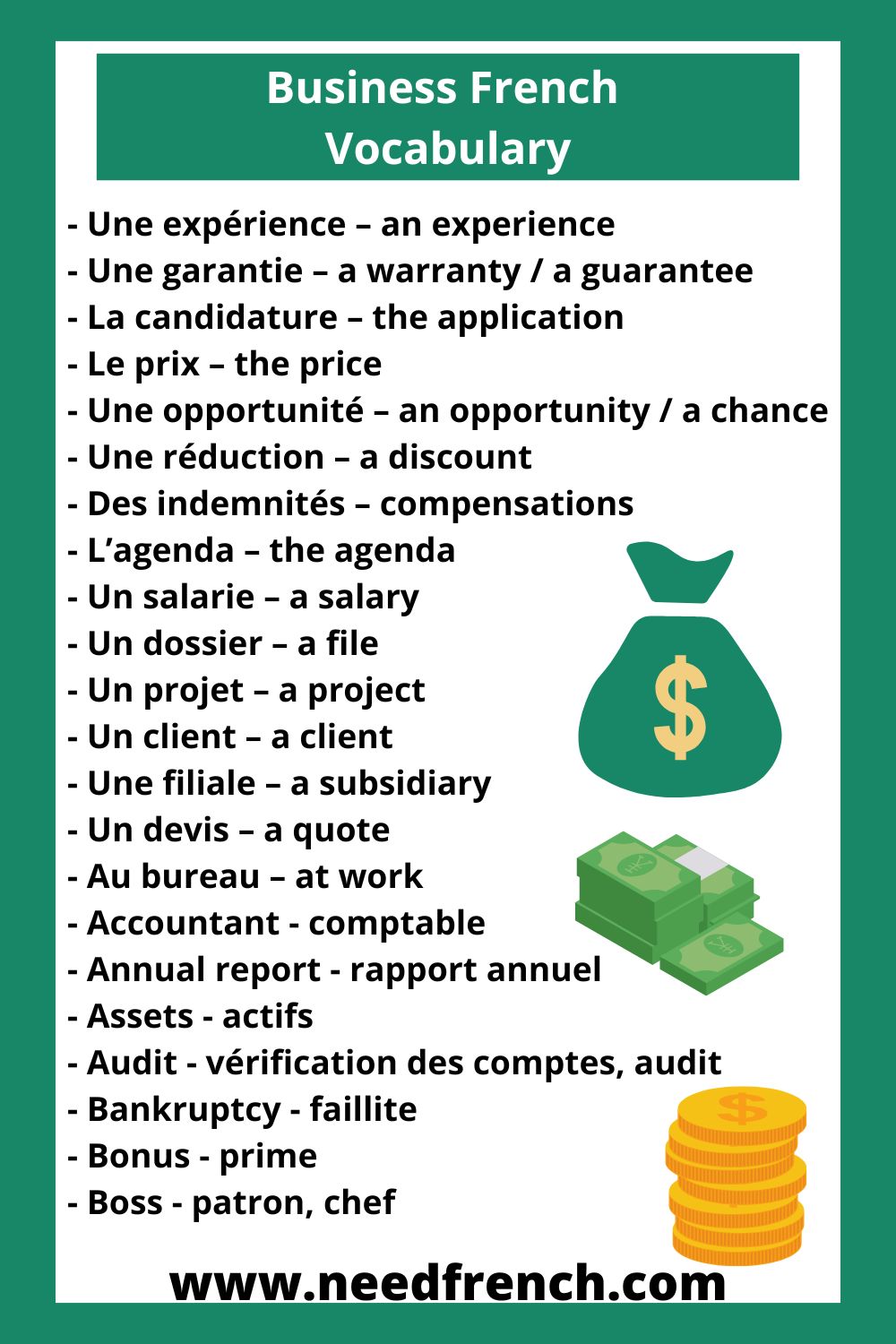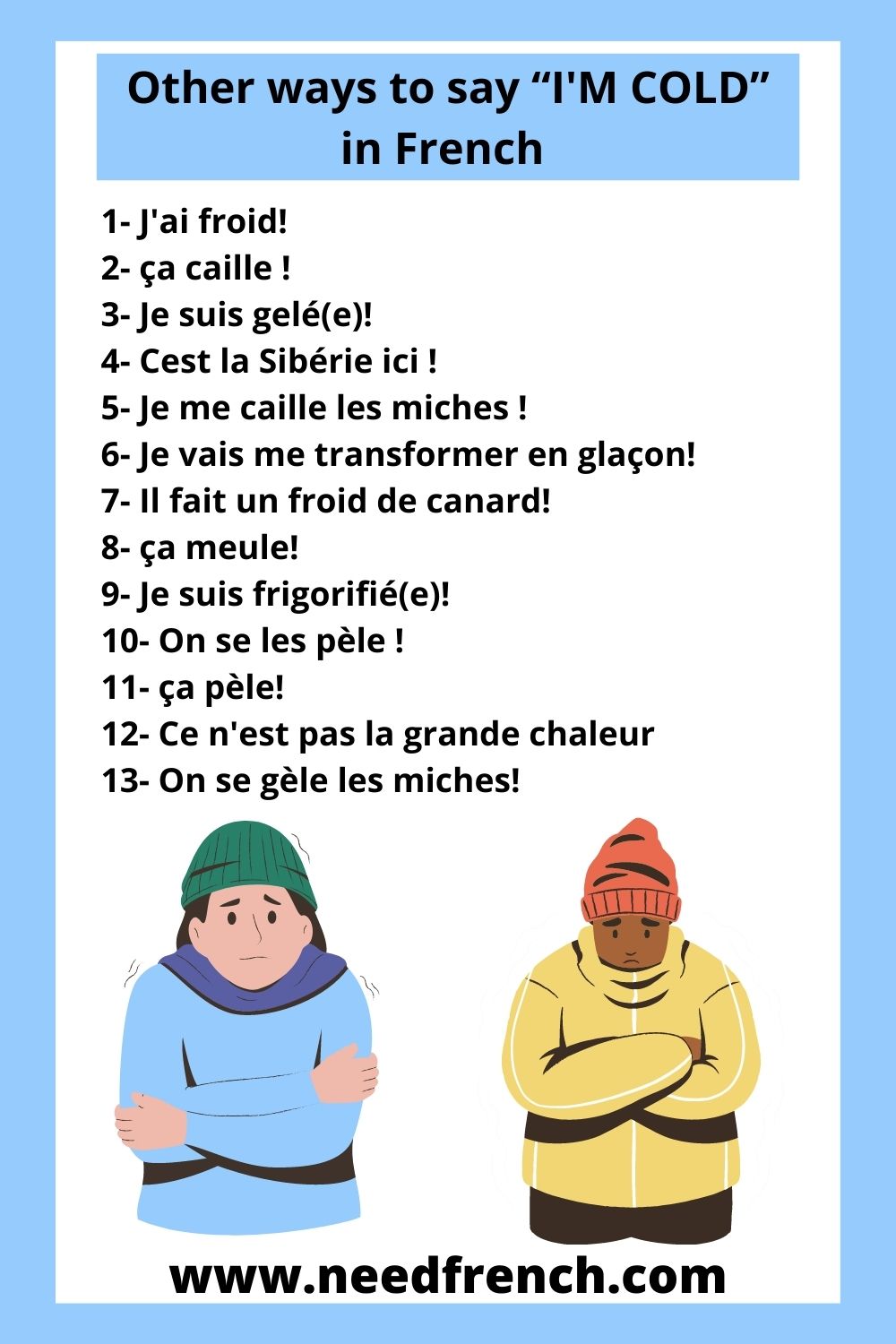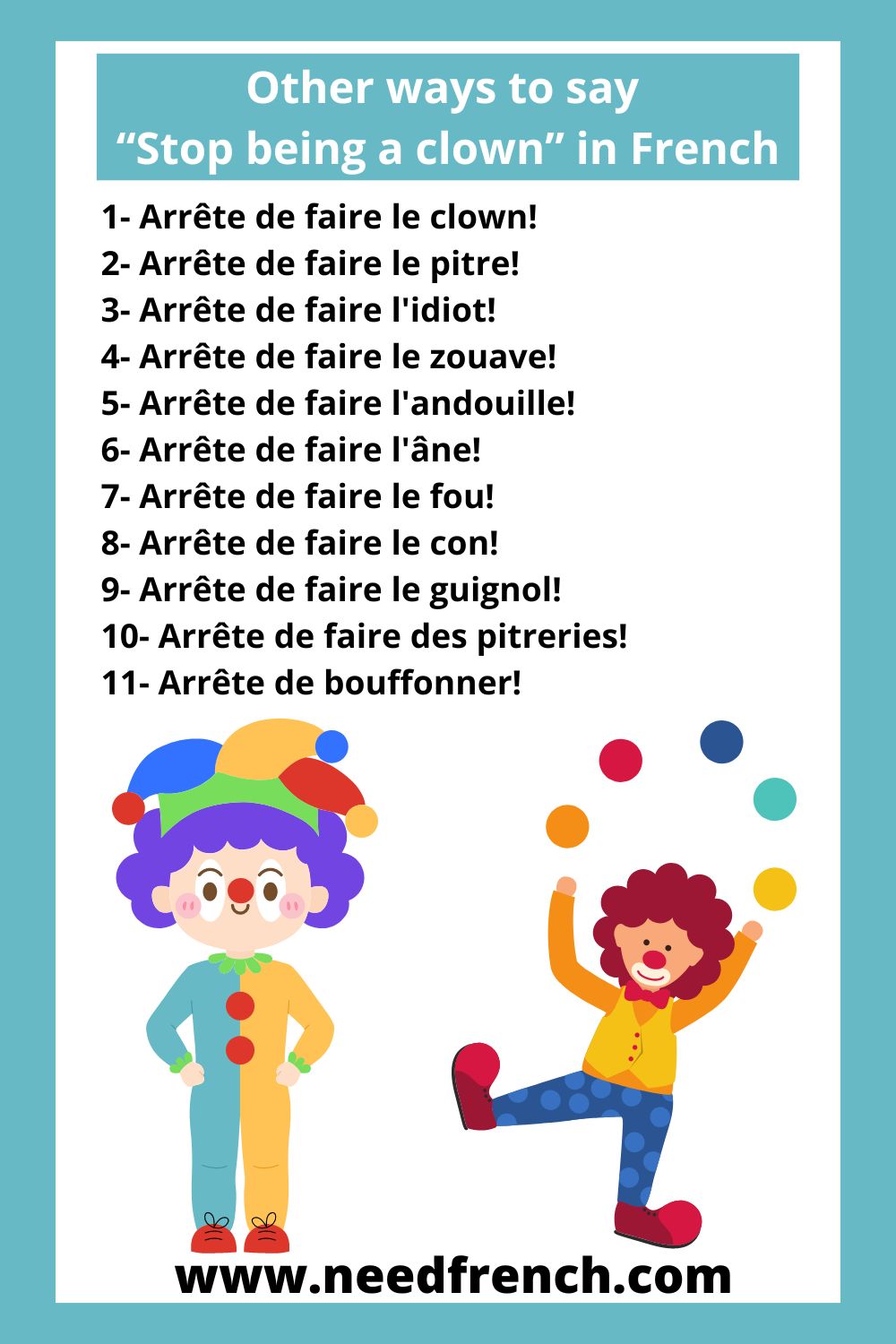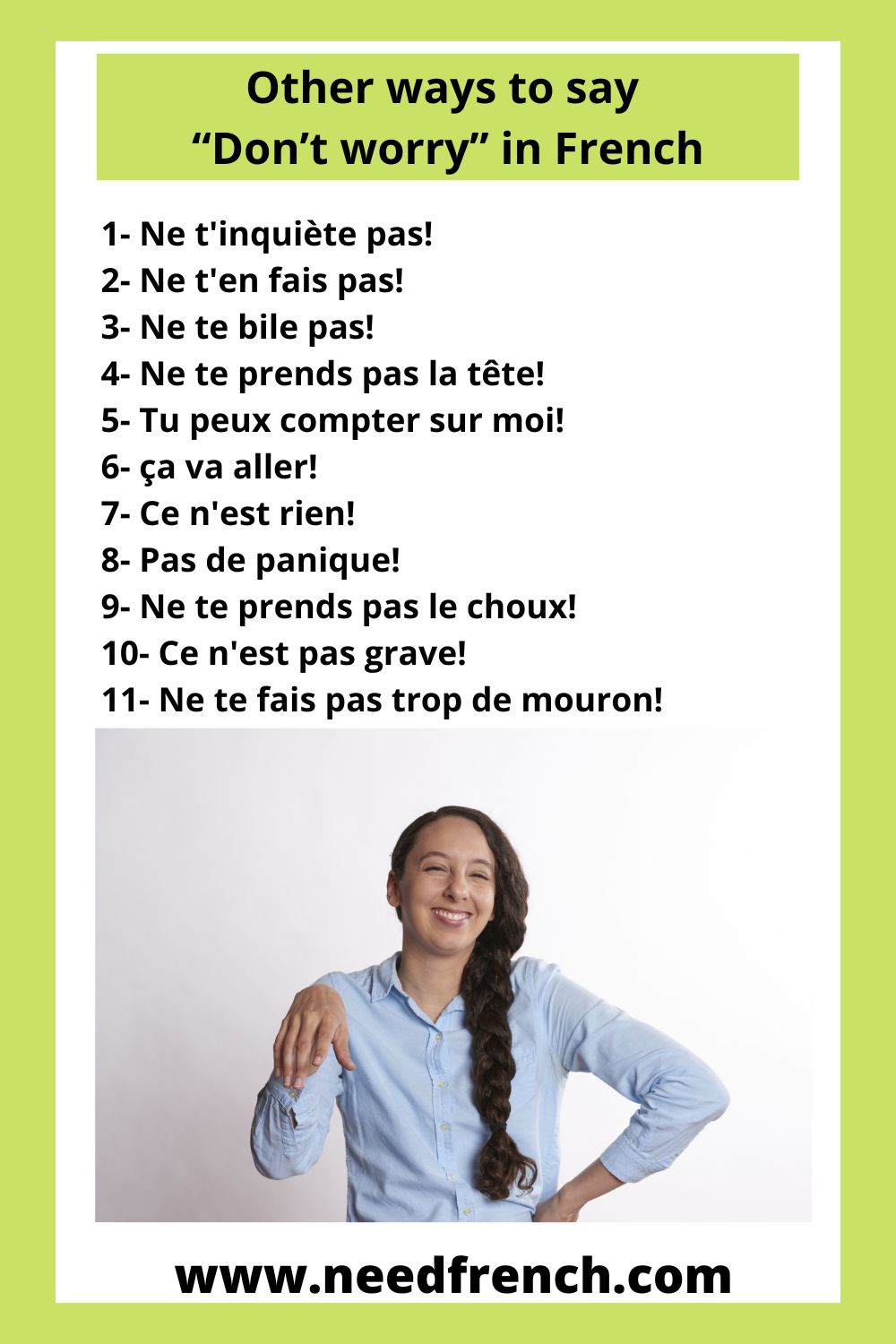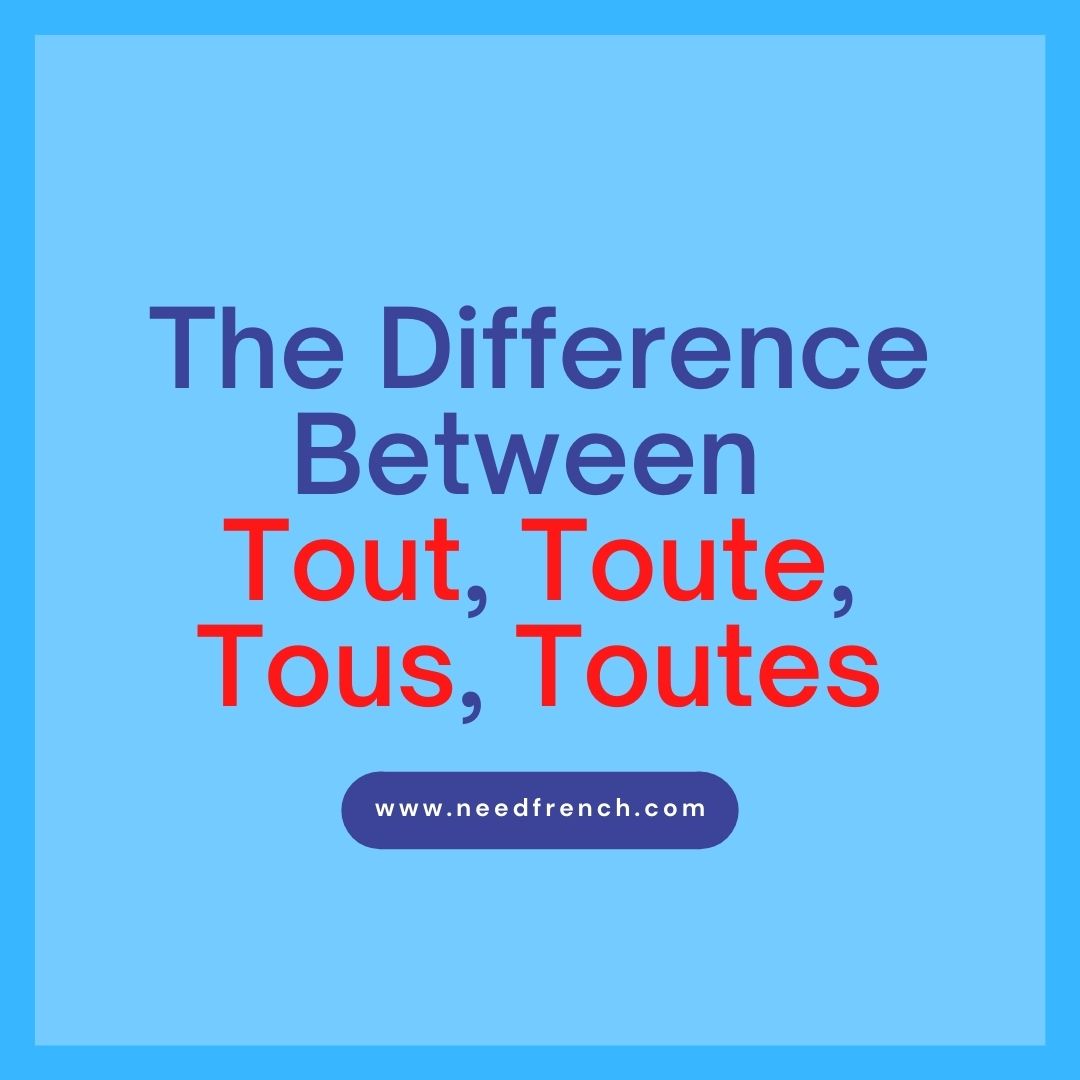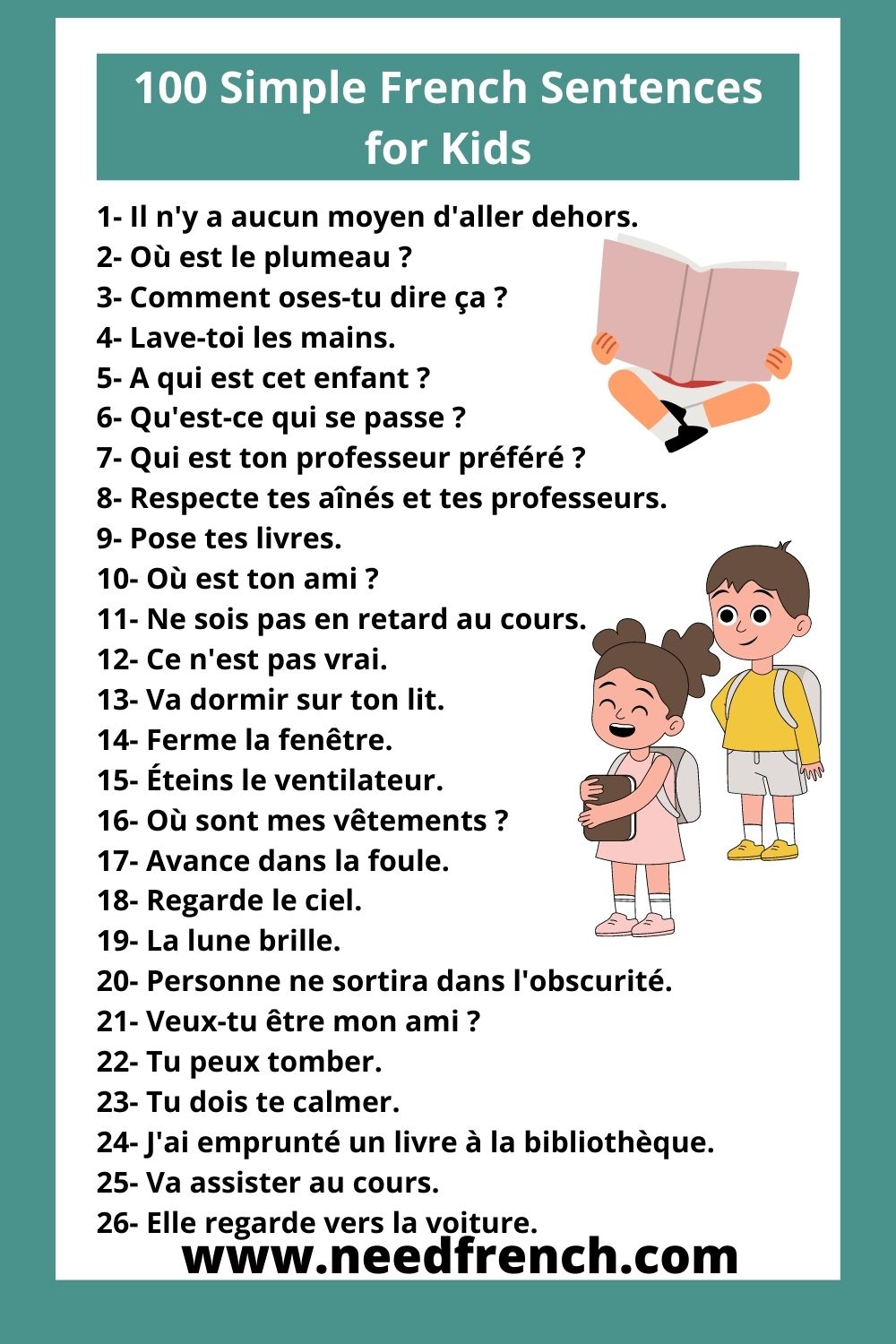French is often called the language of love, and for good reason. The French language offers a myriad of beautiful and poetic ways to express affection beyond the classic “je t’aime” (I love you). This article will explore various expressions of love in French, helping you communicate your feelings with nuance and cultural authenticity.
Table of Contents
ToggleWhy Learn These Expressions?
- Cultural insight: These phrases offer a glimpse into French romantic culture.
- Emotional nuance: Different expressions convey varying degrees of affection and commitment.
- Linguistic versatility: Expand your French vocabulary in a meaningful, emotionally rich way.
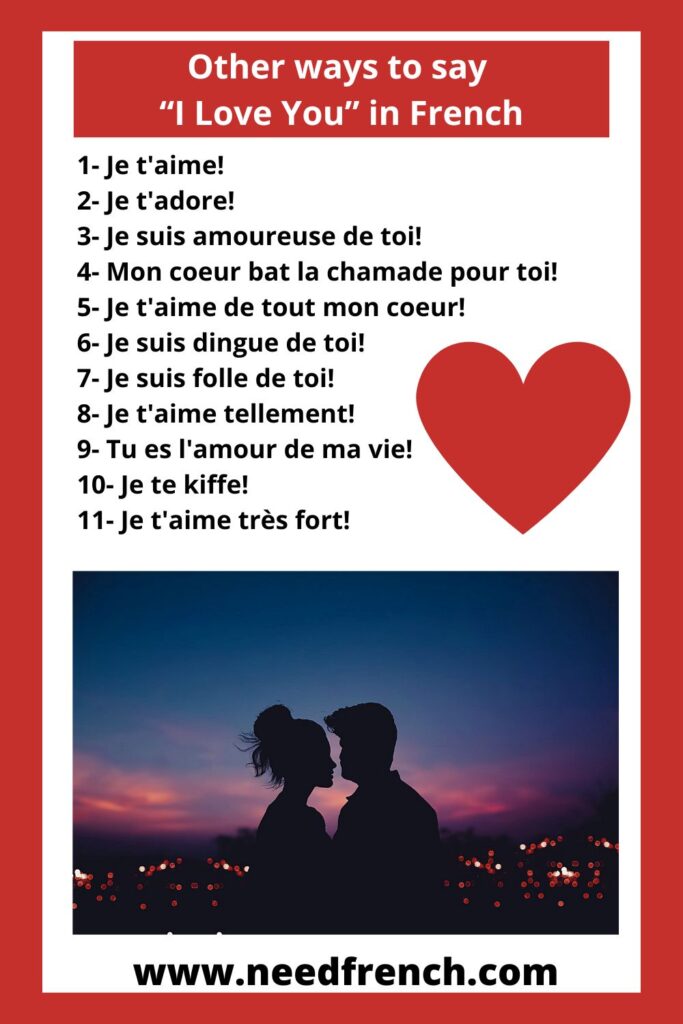
Pronunciation Tips
Before we dive into the expressions, let’s cover some key pronunciation points:
- “Je t’aime” is pronounced “zhuh-TEMM”
- Pay attention to liaisons (linking sounds between words)
- Listen to native speakers to perfect your accent
11 Ways to Say “I Love You” in French
- Je t’aime!
- Meaning: I love you!
- Usage: The classic, sincere declaration of love.
- Formality: Neutral, suitable for all romantic relationships.
- Je t’adore!
- Meaning: I adore you!
- Usage: A passionate step above “je t’aime”.
- Formality: Slightly more intense than “je t’aime”, still widely used.
- Je suis amoureux/amoureuse de toi!
- Meaning: I’m in love with you!
- Usage: Declares the depth of your devotion.
- Note: Use “amoureux” for male speakers, “amoureuse” for female speakers.
- Formality: More formal declaration, often used in serious relationships.
- Mon cœur bat la chamade pour toi!
- Literal meaning: My heart is beating wildly for you!
- Usage: A poetic way to convey your racing heart.
- Formality: Romantic and slightly poetic, good for written expressions of love.
- Je t’aime de tout mon cœur!
- Meaning: I love you with all my heart!
- Usage: Expresses complete devotion.
- Formality: Deeply romantic, suitable for long-term relationships.
- Je suis dingue de toi!
- Meaning: I’m crazy about you!
- Usage: Shows intense infatuation.
- Formality: Informal, playful, often used in newer relationships.
- Je suis fou/folle de toi!
- Meaning: I’m mad about you!
- Usage: Similar to “dingue de toi”, expresses intense feelings.
- Note: Use “fou” for male speakers, “folle” for female speakers.
- Formality: Informal, passionate, good for expressing strong attraction.
- Je t’aime tellement!
- Meaning: I love you so much!
- Usage: Emphasizes the intensity of your love.
- Formality: Neutral, can be used in various stages of a relationship.
- Tu es l’amour de ma vie!
- Meaning: You are the love of my life!
- Usage: For when they are your everything.
- Formality: Very serious declaration, often used in long-term commitments.
- Je te kiffe!
- Meaning: I’m really into you!
- Usage: Slang term often used by French youth.
- Formality: Very informal, use cautiously and only in casual, youthful contexts.
- Je t’aime très fort!
- Meaning: I love you very much!
- Usage: Simple but full of feeling.
- Formality: Neutral, slightly more emphatic than a simple “je t’aime”.
Cultural Notes
- The French often use terms of endearment alongside these phrases, such as “mon amour” (my love), “mon chéri/ma chérie” (my darling), or “mon cœur” (my heart).
- Physical affection often accompanies verbal expressions of love in French culture.
- The informal “tu” form is used in all these phrases, as they’re intended for intimate relationships.
How to Use These Expressions
- Consider the stage of your relationship when choosing an expression.
- Pay attention to the formality level and context.
- Use body language and tone of voice to enhance the meaning.
- Practice with a native speaker to perfect your pronunciation and delivery.
Conclusion
These French expressions of love showcase the language’s romantic richness. By learning them, you’re not just expanding your vocabulary, but also gaining insight into French cultural attitudes towards love and affection.
Practice Activity: Try writing a short love letter in French using at least three of these expressions. This will help you understand how they might be used in a romantic context.
Question for readers: Which of these expressions do you find most romantic? Are there similar expressions in your own language? Share your thoughts in the comments below!
Want to warm up your French skills? Check out our other articles:
